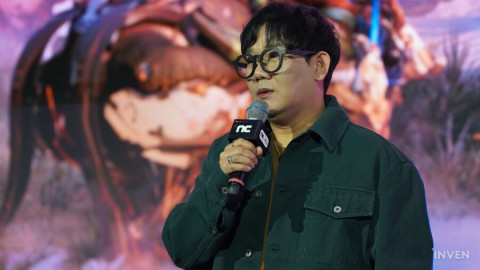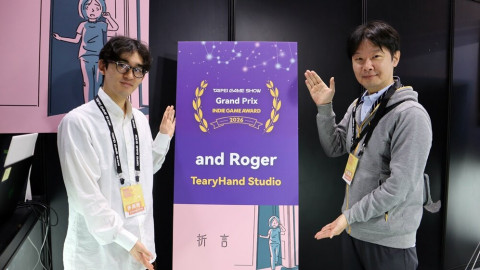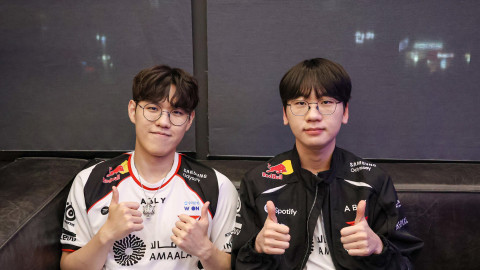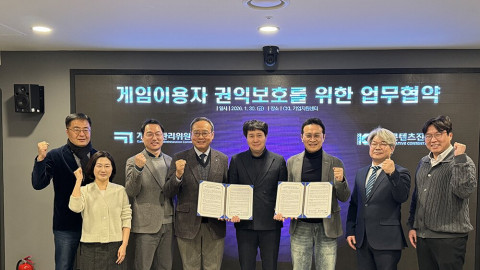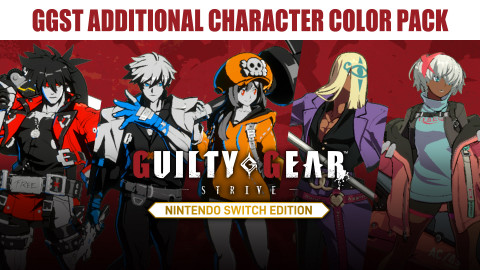A Deep Role-Playing Game in the Disguise of an FPS
The new IP from Obsidian Entertainment, 'Outer Worlds', which captivated many fans with its in-depth classic RPG, has returned as a sequel after four years. The first installment in 2019 garnered attention for its retro-futuristic style reminiscent of the Fallout series and its unique setting of a corporate-dominated Space colony, but it was soon forgotten by everyone due to its short playtime, shallow depth, and particularly poor Korean translation.
The sequel, Outer Worlds 2, is called an "expansive sequel”' by Obsidian, and it is evident that they are making efforts to address and improve the issues of the previous game. The Korean localization (based on PS5) has noticeably improved compared to the demo version a few months ago, and the RPG system, which is the core of the game, showcases Obsidian's expertise.

Game Name: Outer Worlds 2
Genre: RPG
Release date: 2025.10.30
Review copy: Review build
Developer: Obsidian Entertainment
Service: Xbox Game Studios
Platforms: PC, PS5, Xbox
Play: PS5
Welcome to the New Space Colony, Arcadia
"Your Own Playground" That Fills the Shortcomings of the Previous Game

▲ The unique visuals of Outer Worlds are still intact.
Unlike the previous work, which was set in the outlying region of the universe 'Halcyon', 'Outer Worlds 2' is set in 'Arcadia', the birthplace of one of the most important technologies in the world, 'Skip Drive'. In the past, this place was under the rule of a faction called 'The Protectorate', but the situation deteriorated very quickly due to the invasion of capitalist mega-corporations and the rebellion of religious people (?).
As the commander of the 'Earth Directorate', which protects the order and justice of the universe, the player embarks on a journey to save humanity from the threat of a massive dimensional rift that threatens to engulf the entire Arcadia, as well as the events that occurred in the Prologue part. And the method is entirely up to the player.
While the previous work featured major corporations such as 'Spacer's Choice', 'Auntie Cleo's', and 'Halcyon Holdings Corporate Board' as the main factions, this title welcomes players with more colorful factions. Since the previous work, Spacer's Choice and Auntie Cleo's have become a capitalist corporate faction named 'Auntie's Choice' through a hostile takeover, while 'The Protectorate' is represented as a group that believes in a totalitarian system that sacrifices individuals for the greater good and peace. Here, religious factions such as the 'Order of the Ascendant', face various different cult-like issues, just like in our reality, depending on the perspective of reading and interpreting doctrines.

▲ The protagonist is busy delivering 'justice' to the galaxy colonies
The 'Earth Directorate' to which the player belongs is also a faction mentioned in the previous work. They are depicted as those who impose severe punishment under the name of 'justice' towards colonies that engage in monopolies and dictatorships.
In other words, they can be considered like space police, but as always, there is no absolutely righteous group in this twisted world.
As the player takes on the role of the Earth Directorate's 'Commander', they are tasked with a vast responsibility and mission, more extensive than that of the protagonist in the previous game. They will carry out their duties across various planets within Arcadia, addressing the challenges each planet faces 'in their own way'. Depending on the player's own concept of 'justice', they may maintain positive relationships with various factions or, conversely, act in opposition to them.
The overall size of the map, as well as the NPCs and side quests that can be interacted with, have all become wider and deeper compared to the previous game. Additionally, the localization, which was heavily criticized by many players in the previous game, has been improved, allowing for the long and detailed choices unique to Obsidian to be read without much difficulty. This alone makes 'Outer Worlds 2' a significant improvement over the previous work from four years ago, but that's not all.

Greatly Improved Combat System
With the help of the Halo development team, it finally looks plausible!
Outer Worlds' is an FPS + RPG franchise created by Obsidian, who have effectively demonstrated their RPG narrative expertise through 'Fallout: New Vegas', utilizing their own IP. Due to this fact, many New Vegas fans had high expectations even before its release, and the disappointment was equally significant. The combat system was also one of the many disappointing aspects.
If you've played 'Fallout: New Vegas', you've played 'Outer Worlds' combat. But it's even more primitive and lacking in many ways. The first Outer Worlds combat, where you could take out almost all enemies with a single plasma weapon, without any thrown weapons (grenades, etc.), wasn't memorable.
Based on the feedback players sent about the previous game, Obsidian has almost completely revamped the combat system. According to the developers, they sought advice from Halo developer 343 Industries and were able to create a more FPS-like combat experience.
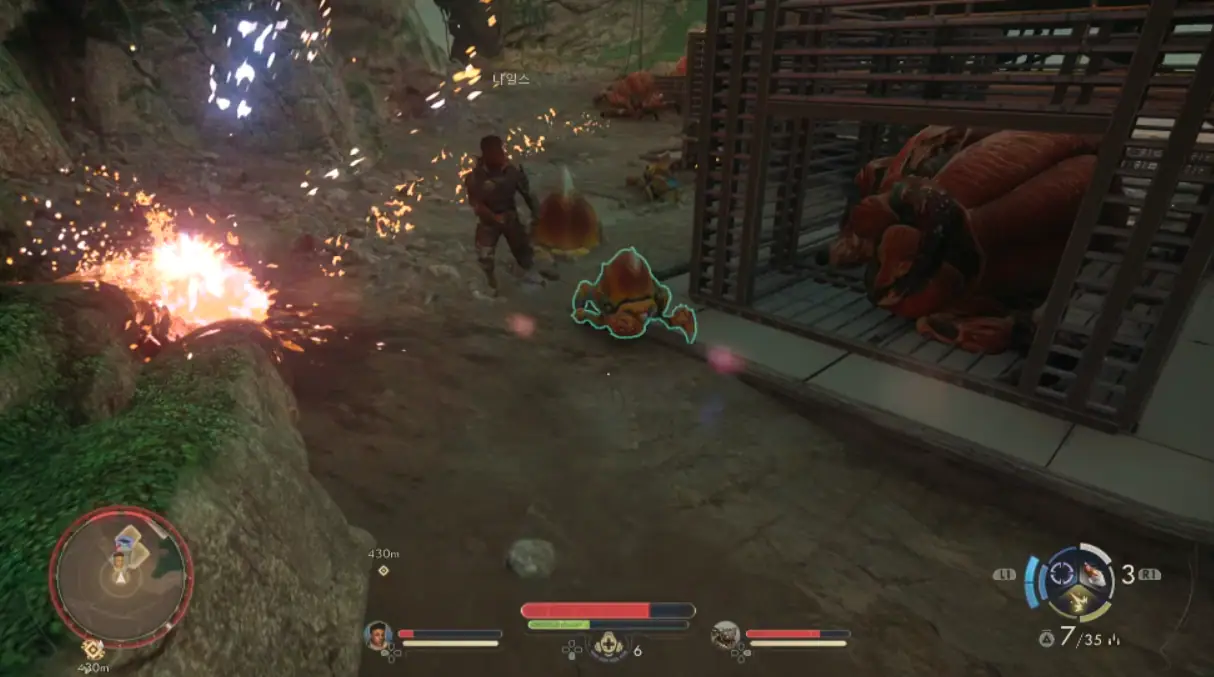
▲ The recoil and reload animations are more pronounced, giving it a chewy texture
Now, the differences between each Weapon type are more apparent, and more unique Items have been introduced to enhance the fun of Grinding. Additionally, the inclusion of parkour movements, reloading animations, more flexible sliding maneuvers, and double jumps has made combat even more exhilarating.
In actual gameplay, even though it's on normal difficulty, there were often encounters with formidable enemies. It's no longer easy to eliminate enemies by simply shooting at them. Instead, it became enjoyable to clear enemies by targeting their weaknesses or maximizing the advantages of the weapons you have. The increased number of unique weapons gives the feeling of ample reward. Starting with the Revolver Shotgun available from the first shop, the ability to upgrade and utilize early weapons through various Weapon Mods until the end is also appealing.
However, combat is just an additional device that appears as the Player explores Arcadia as a 'Commander'. This game is made by Obsidianand it focuses more on creating 'my own story' by combining witty dialogue, deep RPG elements, and various systems.

▲ The third-person perspective is pretty plausible too (though the Impact is reduced).
Changes Brought by the Improved “Flaw” System
Skill, Traits, and even Weapon! Endless Build Freedom
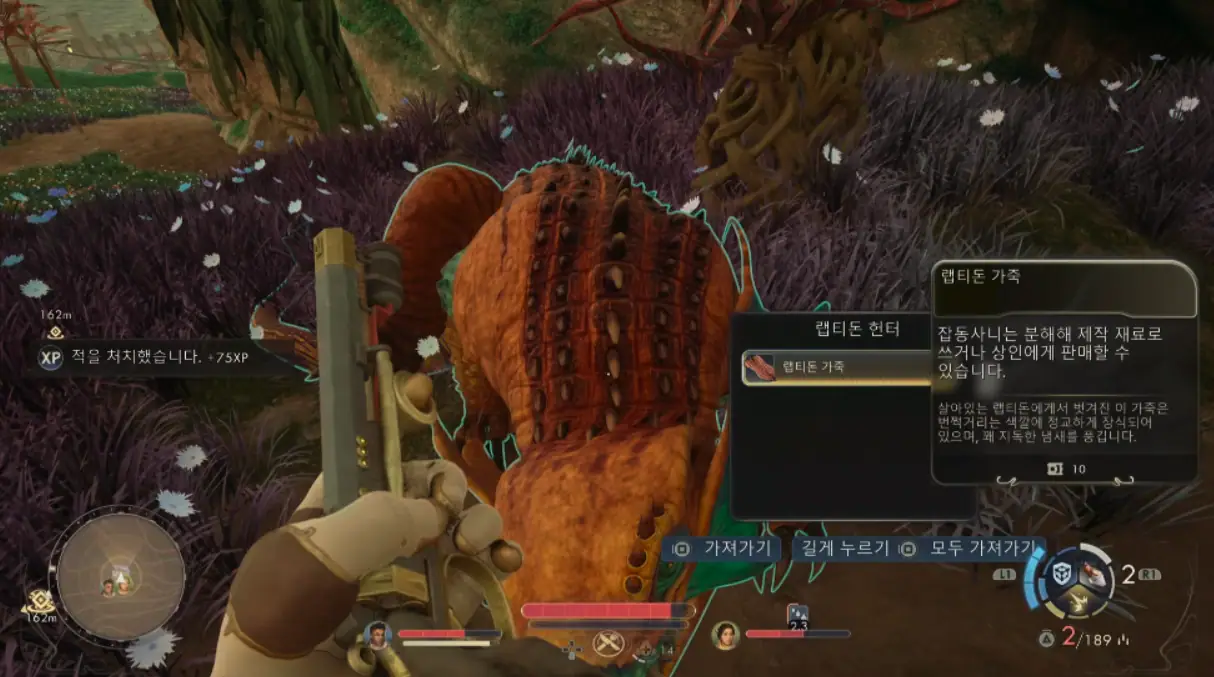
▲ Depending on your play style, you'll get a 'flaw'
The 'Flaw' system is a device designed to make each player's experience unique in the 'Outer Worlds' franchise. As the player progresses through the game, the Flaw system dynamically suggests character traits by identifying the player's habits and play patterns. In this work, it operates by reinforcing the player's habits while penalizing them when they deviate from that style.
For example, if a Player frequently crouches to hide, the game suggests a flaw by saying, "Your knees are worn out." While crouching speeds up, it also increases the sound from your knees(sob), making you more noticeable to enemies. Do you have a habit of shooting one or two shots and then reloading? If so, the game introduces a flaw where you receive a Debuff when you completely empty your Weapon's magazine.
As such, the flaws appear completely differently depending on what kind of behavior the Player shows in the game, and the Character development that is fully personalized to the individual Player takes place in the process of accepting or rejecting this proposal.
Among these flaws, there is also the 'Jack of All Trades!' flaw, which is a flaw that can be obtained when investing points in multiple Skills without specializing in a specific Skill. When you Level up, you can obtain one additional Skill point, but you are restricted to distributing it evenly among all Skills. Regardless of my will, I must develop my Character as a 'Master of None.'

▲ Jack of All Trades, more like Jack of No Trades... In the end, I had to remake the Character
From Character creation to dialogue choices and flaw systems, all these elements come together to create a truly unique experience. You can create a character specialized in stealth by choosing relevant, Skills, Traits, and Flaws, or you can even accept a particular flaw that automatically embraces all the flaws and enjoy a gameplay that is unpredictable.
Of course, every choice you make has its drawbacks. If a Character specialized in Stealth fails to Eliminate an enemy, the lowered Health and Attack will make fair fights even harder. This is especially impactful in Boss fights, where I personally felt the game became extremely difficult, even on Normal difficulty.
That's why Outer Worlds 2 has prepared various routes to approach specific quests. Of course, you won't always be given a situation that suits you, so there will be times when you have to experience more difficult situations than others. That's the core element of the game that creates 'your own story', and it's what motivates you to enjoy the game by creating new characters over and over again.

▲ Character Development Status, Interactions with NPCs vary depending on the information you've secured

▲ Skills, Traits, and Flaws come together to create a 'Character of Your Own'
Still, it feels desolate.
An open world without vitality remains a divisive element among players.
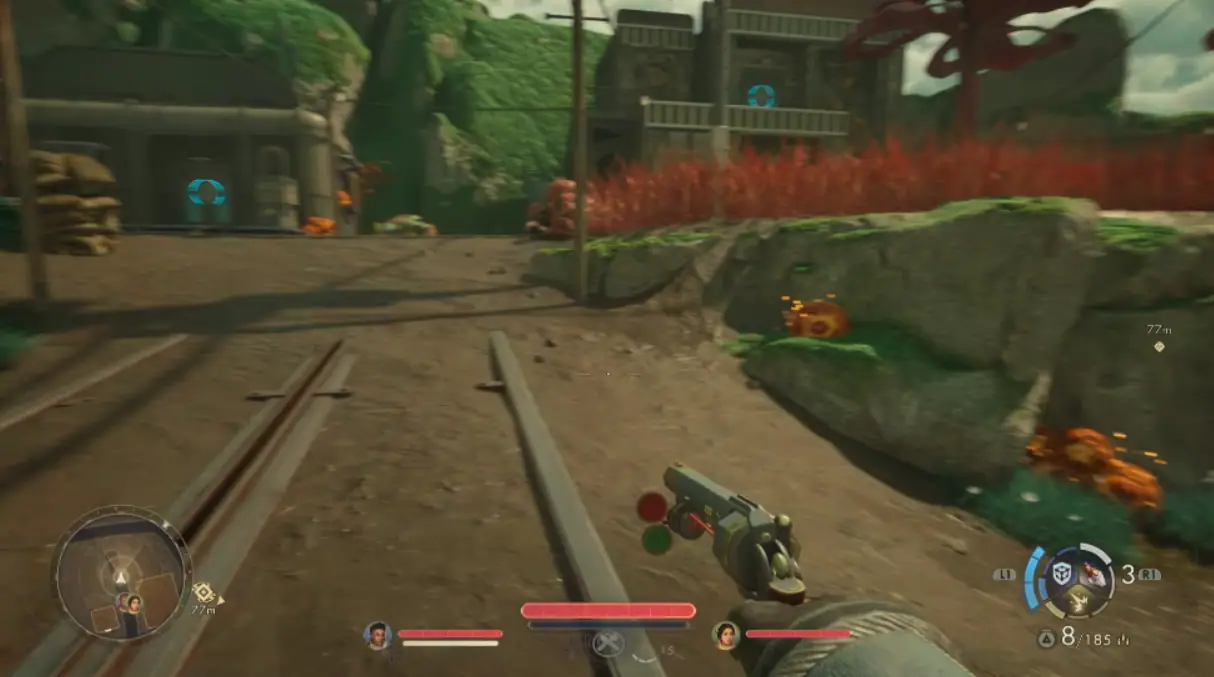
▲ Seize Everything in the Name of Justice
Although 'Outer Worlds 2' shows more development than its predecessor in many aspects, there are still some disappointing points. In particular, the implementation of the open world has not improved much from what many players criticized in the previous game.
Outer Worlds 2' is a game that revolves around multiple planets, and the journey between them is replaced by a 'loading screen' using the commander's spaceship, 'Incognito'. The maps of each planet are wider than in the previous game, but they don't feel significantly larger. However, there are enough elements to explore. The issue lies not in the size of the maps, but in the lack of 'vitality'.
The 'NPCs living their own lives' that have been showcased in recent Open world RPGs are almost... no, they don't exist in this game. If you want to see NPCs going to work or eating meals at different times, this game is not for you. There are still loose rules, such as getting a bounty for stealing other NPCs' items or killing NPCs, but they are not very strict.
Players can enter almost every civilian's house without restriction, and even the highest-ranking person's bedroom in the colony, as long as their Skill allows it. It felt more like a stage set designed for the Player than living as one person in the space called Arcadia.
It is presumed that resources were concentrated on in-depth conversations with colleagues and in-depth RPGs that nurture your own characters, resulting in the implementation of the world's vitality being pushed down the priority list. In a way, this seems like an intentional choice. This world is not a world that continues to exist without you (as other RPGs have shown). Rather, it is closer to a background map in a TRPG where you leave your pawns, becoming the stage for your story.

▲ Each planet has a different visual style, but they all lack a sense of vitality
As a result, Outer Worlds 2 significantly improves upon the shortcomings of its predecessor and fully enhances Obsidian's strength, the 'in-depth RPG system'. Character building centered around the 'flaw' system, improved combat, and meaningful choices provide multiple playthroughs for those who want to explore everything.
However, if you expect a 'living and breathing world' in the Open world genre, you may be disappointed. This game focuses on the 'my own story' created by the Player's choices rather than a vast and colorful world.
The phrase "Prepare for a deep RPG experience" that the developers mentioned in an interview before the release best describes this game. If you are a fan who loved Obsidian's classic masterpieces, you are likely to find a similar experience in 'Outer Worlds 2'. However, you must be willing to endure some divisive elements.

This article was translated from the original that appeared on INVEN.
Sort by:
Comments :0



